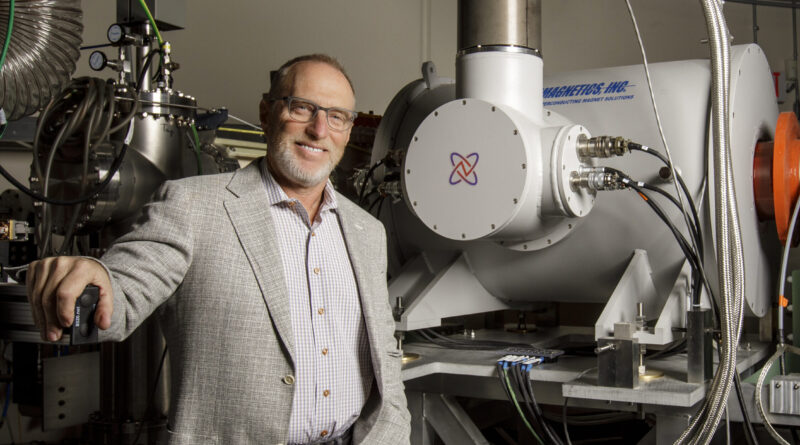Solutions to Physics Problems – Inside the Valley | Los Angeles Business Journal
A small company in Valencia is dealing with the global problem of medicine.
Nusano Inc., a physics firm based in Valencia, announced in October that it has raised $115 million in series C funding. This round was led by Wasatch Group with additional funding from S32, which which brought Nusano’s total income to $217 million.
The new funding comes as the Biden Administration works to boost domestic manufacturing capacity, including pharmaceuticals. The BIOSECURE Act, which was introduced in the House of Representatives in January, would prevent US pharmaceutical companies from receiving government funding if they work with China-based contract development and manufacturing organizations.
Nusano is in the business of producing radioisotopes, an important ingredient in many applications in aviation, manufacturing, agriculture and medicine. The company was founded by Howard Lewin and Glenn Rosenthal in 2016 to solve the problem of many problems that were being sought in the field of medicine: the radioisotopes were not working well to make them. If they worked well, they cost a lot of money. If they weren’t expensive, the reactors were old and unreliable. If it were reliable, the following isotopes could only be used for a few therapeutic doses.
Nusano’s core technology is its ion source, which accelerates heavy particles into mass-produced radioisotopes. These radioisotopes are part of the growing field of nuclear medicine, which uses these radioisotopes to diagnose diseases or kill tumors without the side effects of showering the body with radiation.
“Now you have the reward focused on the tumor, not anywhere else. So, the result is a high success rate and well tolerated without major side effects,” Lewin, who also serves as chief executive officer of Product development Nusano, he says. “And that’s the start of a tsunami of therapeutic radioisotope applications.”
But radioisotopes are one of many compounds that require global cooperation — something the Biden Administration is eyeing as tensions with Russia, China and Israel grow.
“It’s not as easy as we need to do more. That is you have very serious issues of supply. The current methods tend to rely on launching equipment from Russia,” Chris Lowe, my manager in Nusano’s article, he says. And on a good day, you know, it’s a difficult relationship.
The BIOSECURE Act, and others like it, would limit global cooperation with countries the US government believes pose a domestic threat. If passed, these regulations could worsen the growing problem of drug shortages – patients could see at least 300 drug shortages between the end of 2022 and the beginning of 2024, according to the American Association of Pharmacists-Systems Pharmacists.
Lowe says: “While demand is growing exponentially, the weakness of our supply chain is not only hindering the development of new drugs, but it is hindering the lives of patients.”
Enter the Santa Clarita Valley. This area, known for its open spaces between dense mountains, has emerged over the past two decades as the country’s biotech hub. Pharma giant Amgen, based in Thousand Oaks, and biotech-focused firm Westlake Village BioPartners, have helped shape the area into a major biomanufacturing hub that brings together a network of universities and community colleges.
“We need to do what we do in Los Angeles, which is to create, to be different, to prove ourselves, to push boundaries. And for whatever reason, when it comes to biotech and life sciences, we’re not doing that,” says Stephanie Hsieh, chief executive of BioscienceLA. We are getting bigger, we have more places, we have a more diverse population. ”
According to a white paper by the National Center for Pharmaceutical Technology and Education, the US will have to educate and train more people in order for the US to meet domestic drug needs without contributing to the existing shortage.
“We need those workers here. It’s not about getting them back. They are here… Biomanufacturing is here and we are at the forefront of it,” Hsieh says.
Indeed, the nature of the greater Los Angeles area has allowed the region to benefit greatly from biotech innovation. According to Biocom California, the Los Angeles area (which includes Los Angeles, San Bernardino and Ventura counties) will receive $66.9 billion in total economic growth by 2023. That puts the area behind the Bay Area. and before San Diego. It also has more life science centers than the Bay Area, San Diego and Orange County.
Nusano has two drugs approved to treat different types of tumors: one for prostate cancer, and another, Pluvicto, for advanced prostate cancer.
Today, the company has decided to pause the development of its treatments. Instead, it focuses on working with manufacturers to create effective pharmaceutical compounds as demand for nuclear medicine grows.
“We’re really in the early stages of this generation of new treatments,” Lowe said. “And the rate limiting factor is the isotopes.”
#Solutions #Physics #Problems #Valley #Los #Angeles #Business #Journal
